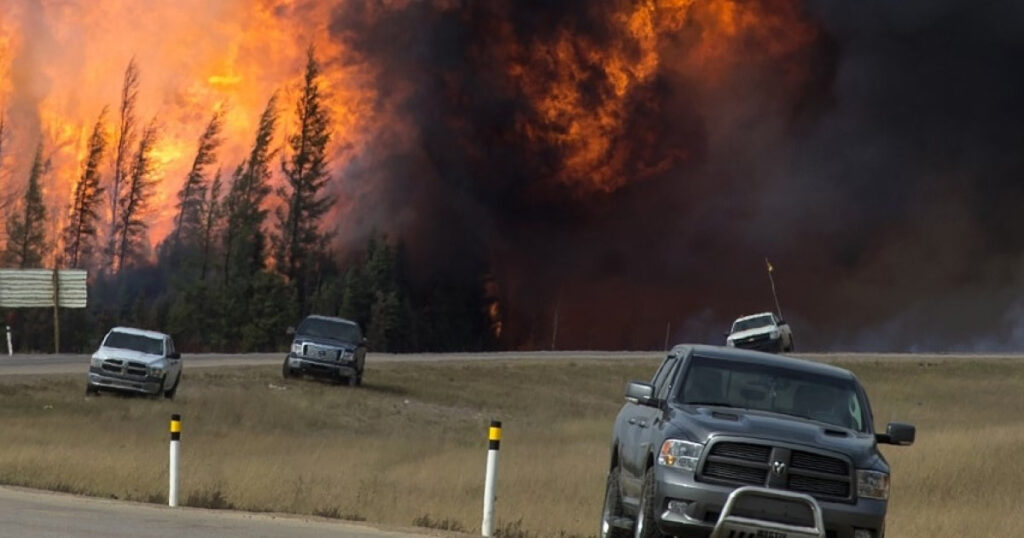Unveiling The Devastating Effects Of Wildfires; Canada Braces For Its Worst-Ever Wildfire Season

Officials in Canada have issued a warning, predicting that this summer would likely be the most catastrophic wildfire season in the history of the nation because to the projected persistence of warm, dry conditions. According to government officials, up to August, there will be a greater risk of wildfires in the majority of Canada. The odd distribution of fires around the nation this year was highlighted by Michael Norton, a representative of Canada’s Natural Resources Ministry. Typically, fires mostly in the west tend to happen on one side of the country at a time. Norton expressed alarm about the rate of growth in the burned area, speculating that if this pattern persists, records may be achieved. . Wildfires in eastern Canada have been fast expanding, forcing evacuations in Quebec’s coastal regions and the Atlantic province of Nova Scotia. Natural Resources Canada researcher Yan Boulanger emphasized the extraordinary magnitude of the burned areas that were visible early in the season. In addition to the destruction of property and residences, wildfires have negatively affected Alberta’s oil and gas output, making it the country’s top producer of petroleum, and have polluted the air in both Canada and the US. Only flooding costs more than wildfires when it comes to disasters in Canada. Prime Minister Justin Trudeau sympathized with individuals impacted by the wildfires during a press conference in Ottawa, citing the emotional toll of losing homes and priceless memories.
Wildfires occur due to a combination of natural and human factors.
Natural Causes: Lightning strikes are a common natural cause of wildfires.
Climate and Weather Conditions: Hot and dry weather conditions create the perfect environment for wildfires to ignite and spread.
Accumulation of Dry Fuel: The presence of accumulated dry vegetation, such as dead trees, fallen leaves, and grasses, serves as fuel for wildfires.
Human Activities: Human actions are a significant cause of wildfires, either unintentionally or intentionally. Unattended campfires, discarded cigarettes, and sparks from machinery or power lines can ignite fires. Additionally, activities such as arson and irresponsible burning of agricultural lands or debris can also lead to wildfires.
Forest Management Practices: Inadequate forest management practices, such as the suppression of natural fire regimes, can lead to the accumulation of dense vegetation, increasing the risk of severe wildfires. Lack of controlled burns or prescribed fires, which help reduce fuel buildup, can contribute to more intense and destructive wildfires.
Urbanization and Human Settlements: As human populations expand into wild land-urban interfaces, the risk of wildfires increases. Structures located near forested areas or dry vegetation are vulnerable to fire spread, and human infrastructure can also serve as ignition sources for wildfires.
It is essential to note that while natural factors contribute to wildfires, human activities play a significant role in their occurrence and severity. Addressing these factors through proper land and forest management, fire prevention measures, public awareness, and responsible behavior can help reduce the risk and impact of wildfires on ecosystems and communities.